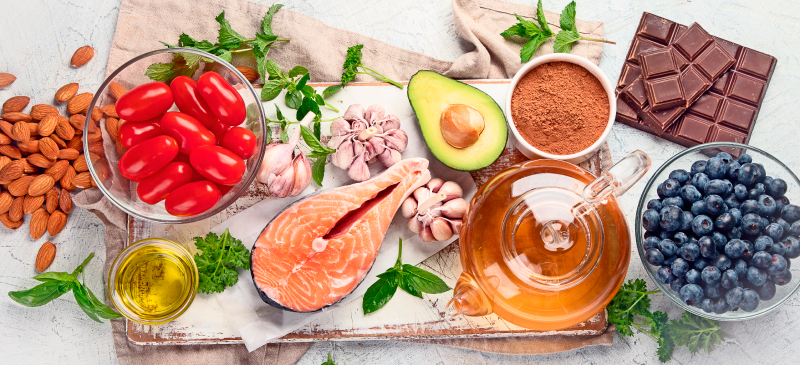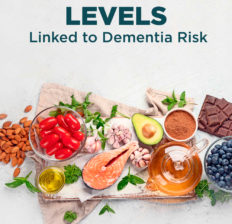This Dr. Axe content is medically reviewed or fact checked to ensure factually accurate information.
With strict editorial sourcing guidelines, we only link to academic research institutions, reputable media sites and, when research is available, medically peer-reviewed studies. Note that the numbers in parentheses (1, 2, etc.) are clickable links to these studies.
The information in our articles is NOT intended to replace a one-on-one relationship with a qualified health care professional and is not intended as medical advice.
This article is based on scientific evidence, written by experts and fact checked by our trained editorial staff. Note that the numbers in parentheses (1, 2, etc.) are clickable links to medically peer-reviewed studies.
Our team includes licensed nutritionists and dietitians, certified health education specialists, as well as certified strength and conditioning specialists, personal trainers and corrective exercise specialists. Our team aims to be not only thorough with its research, but also objective and unbiased.
The information in our articles is NOT intended to replace a one-on-one relationship with a qualified health care professional and is not intended as medical advice.
Higher Antioxidant Levels Linked to Lower Dementia Risk
June 3, 2022

We know that a diet high in antioxidants offers protection against free radical damage and oxidative stress, two contributors to many chronic diseases, especially those associated with aging.
Do antioxidants help with dementia? Based on recent research, it appears that they do.
A new study found that adults with higher levels of antioxidants circulating in their bodies — especially the types called lutein, zeaxanthin and beta-cryptoxanthin — seem to benefit from increased protection against developing dementia, one form of cognitive decline.
Study Findings: Antioxidant Levels Linked to Dementia Risk
Dementia is the general term for cognitive decline that is severe enough to interfere with daily life. Alzheimer’s is the most common cause of dementia, but not the only kind.
Both dementia and Alzheimer’s typically result in loss of memory, language difficulties, issues with problem-solving and other mental impairments.
Findings from a May 2022 study published in the the journal Neurology showed that higher antioxidant levels are linked to lower dementia risk.
Data from the study indicates that when adults consume more antioxidants from a healthy diet, especially one high in plant foods, they are less likely to develop dementia as they age. Specific antioxidants that were found to be protective against cognitive decline include lutein, zeaxanthin and beta-cryptoxanthin.
These antioxidants are found in nutrient-rich foods, including:
- leafy greens (like kale, spinach, collard greens, etc.)
- other veggies, such as broccoli and peas
- oranges
- papaya
- berries
This particular study included over 7,200 adults who were 45+ years old when the study began. All participants were tested for levels of vitamins A, C and E and carotenoids antioxidants in their blood at the beginning of the study. They were then followed for an average of 16 years.
Over the course of 16 years, researchers tracked who developed dementia and who did not, and then they compared differences in these two group’s diets.
Here are the main findings from the study:
- Adults who had the highest levels of lutein and zeaxanthin in their blood at the beginning at the study were less likely to develop dementia than those with lower levels.
- The more lutein and zeaxanthin in someone’s blood, the better protected that person was from dementia years later.
- Higher blood levels of beta-cryptoxanthin were also found to be protective against dementia.
How do antioxidants affect the brain?
Antioxidants are substance that protect cells from damage caused by free radicals, which develop during the process of oxidation during normal metabolic function. While some level of free radical damage is unavoidable, certain lifestyle factors worsen free radical damage/oxidative stress, such as cigarettes, alcohol, radiation and environmental toxins.
Free radicals lead to reactive oxygen species (ROS) and reactive nitrogen species (RNS), such as superoxide, hydroxyl and nitric oxide radicals. These damage DNA and lead to the oxidation of lipids (fats) and proteins in cells. This then contributes to certain chronic and degenerative diseases.
Foods that provide antioxidants can help protect the brain from free radical damage and oxidative stress, which can cause cellular damage in the brain. Therefore high-antioxidant foods are thought to naturally buffer brain cells from experiencing changes that contribute to cognitive decline.
How to Increase Antioxidant Intake
There are many types of antioxidants and phytonutrients found in unprocessed plant foods, including carotenoids (the type measured in this study mentioned above), flavonoids, polyphenols and others.
The best way to boost your intake of protective antioxidants is to consume a variety of plant foods in their natural forms — or in other words, to “eat the rainbow.” When a plant is brightly or deeply colored, such as kale, mango or blueberries, it indicates that it has high levels of antioxidants.
Choosing fruits, veggies, herbs and spices that come in various colors is a good way to obtain a mix of disease-fighting compounds.
Some of the best foods for increasing your antioxidant intake include:
- Leafy greens, such as microgreens, dandelion and turnip greens, kale, spinach, collard greens, and others
- Cruciferous veggies, such as broccoli, cauliflower, Brussels sprouts and cabbage
- Other veggies, like bell peppers, mushrooms, green beans, tomatoes and artichokes
- Root veggies, like carrots, beets, sweet potatoes and winter squash
- Berries, such as strawberries, blueberries, cranberries, raspberries, acas, goji, mulberries, etc.
- Cherries
- Citrus fruits, including oranges, tangerines, grapefruit, etc.
- Topical fruits, like papaya, mango, pineapple, kiwi and guava
- Beans, legumes and green peas
- Spices, such as turmeric, ginger, basil, etc.
- Herbs, like basil, cilantro, parsley, etc.
- Cocoa and dark chocolate
- Red wine
Other healthy foods to emphasize for cognitive health include:
- oily fish like salmon and sardines
- olive oil and coconut oil
- avocados
- eggs
- probiotic foods
- nuts and seeds
Overall, aim for a diet similar to the Mediterranean diet (or MIND diet), in combination with regular physical activity and a healthy BMI.
Other Tips to Protect Brain Health
What else lowers your risk of dementia? Aside from eating an anti-inflammatory diet, other ways to prevent and treat Alzheimer’s and dementia include:
- Purchase organic foods as much as possible to avoid exposure to pesticides and other chemicals. Be especially careful about avoiding the “dirty dozen,” which are nonorganic fruits and vegetables that are coated with agricultural chemicals.
- Quit smoking cigarettes and using drugs, since both damage cells and the brain.
- Only consume alcohol in small to moderate amounts, meaning no more than one to two drinks per day.
- Get enough exercise every day, meaning about 30 to 60 minutes of moderate-intensity exercise (such as brisk walking) most days of the week.
- Prioritize sleep, aiming for seven to nine hours per night.
- Test your water if you drink tap water, or get a recent water testing report if you drink municipal water. Use a water filter at home to cut out contaminants.
- Eat less foods in packages, which can contain contaminants and are also likely to be made with added sugar, artificial ingredients, lots of sodium and preservatives.
- Consider taking some of the following supplements that may help protect the aging brain: fish oil with DHA (1,000 mg daily), vitamin D3 (5,000 IU daily), CoQ10 (200 mg daily), ginkgo biloba (120 mg daily) and phosphatidylserine (300 mg daily).
Conclusion
- Do antioxidants prevent dementia and Alzheimer’s? According to a 2022 study, higher antioxidant levels are linked to lower dementia risk.
- Findings from a May 2022 study published in the the journal Neurology indicate that when adults consume more antioxidants from a healthy diet high in plant foods, they are less likely to develop dementia as they age.
- Specific antioxidants that were found to be protective of the brain include lutein, zeaxanthin and beta-cryptoxanthin.
- These compounds are found in anti-inflammatory, nutrient-rich foods, such as leafy greens, other veggies, berries, citrus fruits, tropical fruits, herbs and spices.




